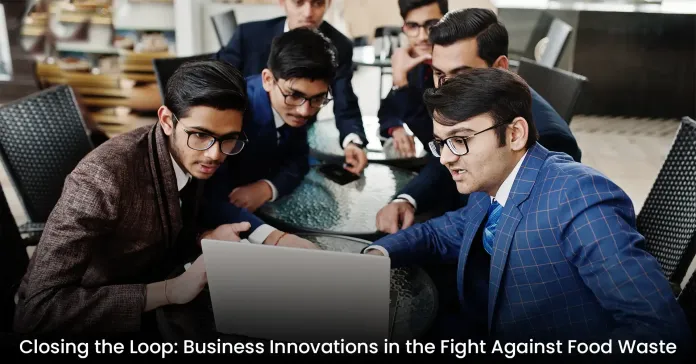Food waste impacts our environment greatly. The food that gets wasted and ends up in a landfill releases greenhouse gases which negatively affects the climate and is leading to climate change. You must be surprised to know that every year 2.5 billion tons of food gets wasted across the globe. And out of it 120 billion pounds of food is wasted on the US alone. It turns out that wasted food is one of the major causes contributing to generating large amounts of greenhouse gases.
Many companies have come up with the innovative solutions to fight this global problem of food waste. Its time to incorporate simple changes to your daily habits and minimize the food loss to serve the environment in a better way.
Here are the detailed insights into business innovations to fight against the food waste.
Technology helping to reduce food waste
Innovations in the form of technology are playing a significant role in offering innovative solutions to prevent, track, and keep food waste at bay. From AI-powered tools to cutting-edge recycling and reusing methods, there are multiple options for harnessing technology to increase awareness and minimize waste at every stage. For instance – Nowadays, smart refrigerators and storage systems are trending to keep track of food inventory and expiration dates.
Yet another example is advanced sensors that assist in detecting contaminants and spoilage so that only safe and high-quality products reach the consumers. Besides, technology makes the communication between the suppliers, distributors and retailers seamless allowing for better inventory management, hence minimizing the amount of waste.
Data analytics food platform
Data analytics platforms are rightly revolutionizing the way food businesses manage their food waste and increase their operational efficiency. For instance – If you are a food manufacturer or supplier, you can use a data analytics food platform like Brizo to enhance your business operations. How? It allows you to put several filters in the software so that you can have a refined list by your side, telling you about the best restaurants where you can deliver the food items or ingredients you produce. You can put filters like location, restaurant opening times, type of ingredient, and many other things to get the filtered results. After getting the contact details of the restaurants, establish your contact with them to find out how many food items they require. It will help you grow the items, keeping their needs in mind so that you can prevent food wastage.
What’s more? These platforms expedite the scenario planning and predictive modeling process, enabling companies to anticipate future challenges and develop proactive strategies to minimize waste. Leveraging the insights gained from data analytics allows businesses to create more efficient and sustainable operations, ultimately contributing to the global fight against food waste.
Supply chain optimization and AI
AI Powered algorithms help analyze vast amounts of data such as predicting demand fluctuations. Accurately doing such predictions allows companies to get insights into their production levels so that they can take proactive measures to match the anticipated sales, thereby reducing the risk of spoilage and overproduction.
Additionally, transportation logistics and routing can be optimized with the help of AI to ensure there is no delay in the product’s reaching the destination. Reducing delivery times and expediting the transportation process aids in extending the shelf life of perishable goods, hence reducing spoilage during transit. Also, AI can monitor the condition of food products, like temperature fluctuations, in real-time to create a more sustainable supply chain and hence support long-term success.
Technology for recycling and reusing
Innovative recycling methods help reduce food waste and convert it into valuable resources. For instance – Using anaerobic digestion, organic matter can be broken down to produce biogas and nutrient digestate. This biogas can be used as a renewable energy source for electricity and heating, while the digestate can be repurposed as fertilizer for agricultural use. This approach helps reduce food waste and also a major factor in contributing to renewable energy generation.
Additionally, some companies are exploring upcycling initiatives that transform food by-products into new products, such as animal feed, fertilizers, or even snacks and beverages. These practices not only minimize waste but also provide new revenue streams.
Final Thoughts
Addressing food waste is essential for achieving a sustainable and resilient food system. Businesses have a vital role to play in this effort. When they decide to make the most of innovative technologies and strategies, food businesses can minimize waste and maximize value.

